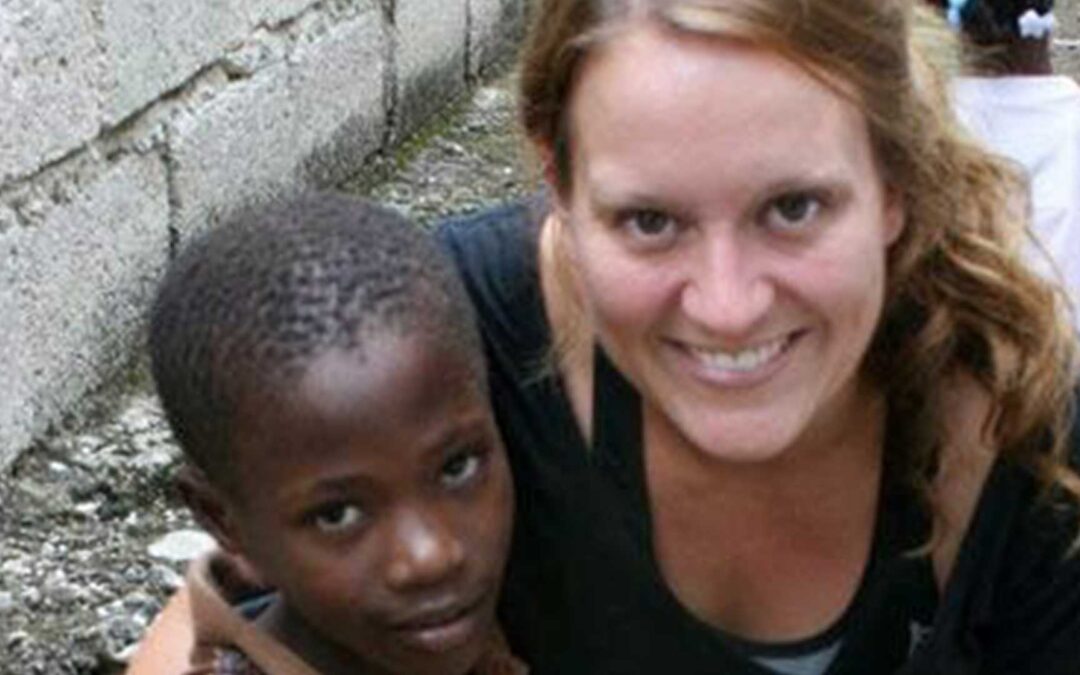Are you planning a visit to our guesthouse in Haiti? We hope that answer is YES! And if you are, maybe you’re asking yourself what you should expect, pack, and so on. Or maybe you’re like the seasoned traveler above and you’ve got your toothbrush and passport and you’re good to go! Might we suggest a few other items? Keep reading…So what are some good things to know before your plane touches down in Haiti?

Language: Haitian Creole is spoken in Haiti. French is considered a second official language though only a small percentage of locals speak it. You might find it helpful to bring with you a Haitian Creole phrasebook like this one or Google “Haitian Creole phrases” to study up a bit before you come. We also sell Creole learning books here at the guesthouse written by a local friend of ours. If you really want to have fun with vocabulary learning, I suggest the Oxford Picture Dictionary. This would also make a special gift for any Haitian buddy of yours as you are leaving!Greetings: Greetings are very important in Haitian culture. It would be considered rude to walk up to someone and start asking questions without first saying “good morning” or “good afternoon” and asking how they are doing. Even if all you can manage is a “bonjou” or “bonswa” that is okay and the locals will be very pleased with your good manners. Men shake hands with men. Men and women greet with a kiss on the cheek, as do women with women. For me, as a female, if I don’t know a man well or feel the need to be overly friendly, I will simply shake hands.
Photo-taking: While many locals do not mind having their photo taken, especially if they can see the photo on your LCD screen afterwards, do take care in being discreet and asking for permission when you can. Some Haitians do not enjoy being immortalized in this way. Some of that may tie into their spiritual beliefs and for others it’s simply a personal preference. I’ve referenced this article before, and it’s a good one concerning photography in the developing world.
Bathrooms: This is often a question that comes up when you’re traveling to a third-world country. Public bathrooms are few and far between in Haiti. What does that mean for you? A couple things… 1) try to use the bathroom on the plane before you land or in the airport before coming outside. It’s hard to estimate how long it will take to travel the 25+ miles to Leogane. But it typically takes at least 1.5-2 hours. And 2) don’t be surprised to see locals “improvising” despite this fact.
Safety: A huge part of staying safe in Haiti is in your hands… actually, in your brain. USE IT and that will increase your safety exponentially. While some of the reports I hear couldn’t have easily been prevented, many others are because people were not being particularly wise. Rules and recommendations from those who live here long-term should be followed such as traveling in pairs (at minimum), obeying the curfew of where you’re staying, not having valuables out in plain sight (and leaving most of them at home anyway!), and so forth. Is Haiti safe? I don’t answer that with a yes or no answer, as my hometown has its dangers as well. But just be reminded that Haiti is a third-world country with the majority of people living in poverty and desperation. Desperate people do desperate things. So be prepared. Be smart. And listen to those who have been there, done that. I recommend signing up for the Smart Traveler Enrolling Program (STEP). Simply input some personal and travel information and in the case of an emergency the State Department is better able to assist you.
Cell phones: The choice is yours whether or not you want to bring your phone. Like any valuable, keep it close. I’ve been with a team on two occasions when an iPhone was stolen. In both cases the owner left it sitting in what they thought was a “safe” spot and walked away to play with some kids a few feet away. Most people bring their smartphones to Haiti for wifi and photo purposes and don’t use it for making calls. If that’s the case, turn off your data roaming feature or whatever tells your phone not to try connecting to a cell phone network. If you want more information on how to avoid an astronomical cell phone bill on your return, ask a friend who has traveled overseas with their phone, search for information online such as this article or call your cell phone company. Haitian SIM cards can be purchased here for a couple bucks. Typically, unlocked GSM network phones work here.
Packing Part 1: You can find some good travel packing lists online. And generally whatever group you’re coming to Haiti with will send you suggestions. I’ll link to FHM’s guidebook at the end of this post. But here are a few of my thoughts and suggestions for packing… I prefer antibacterial wipes to the liquid. I feel like they clean my hands better. Bring the hardcore bug spray, but bring something lighter just in case that works too. The powerful DEET stuff can ruin certain fabrics and materials. You’ll be drinking lots of water. And your water won’t always stay cold, but you’ll still need to drink it! I like to use flavored drink powders to enhance my hydrating experience! Bring some snacks. Yvette will feed you WELL! But only breakfast and dinner are included in a typical stay, so most guests bring snacks for lunch. Make them good, energizing ones! Granola bars, nuts, etc. Clif Mojo bars are my favorite so feel free to bring extra! 😉 Other guest favorites = tuna packs, beef jerky, peanut M&Ms. If you bring peanut butter, put it in your checked luggage. It’s a popular confiscation item. If you want to bring cake mixes, brownie mixes, muffin mixes, I’ll be happy to bake them for you and enjoy them with you! 🙂 Bring ear plugs if you think you might have snoring bunk bed buddies, but otherwise the guesthouse is pretty quiet compared to other places I’ve stayed in Haiti. It’s rare to hear barking dogs, roosters, etc. I always pack my clothes in vacuum seal bags to maximize space. And I recommend bringing a good book and/or journal for your downtime at the guesthouse. We have some board and card games here or feel free to bring your favorite and teach us!
Packing Part 2: Some things you may not have considered… because trash is burned in Haiti, leaving your empty aerosol cans behind is a hazard. Poor Junior (our groundskeeper) had one explode recently while he was burning the trash and didn’t realize it was in there. So either leave them at home, or bring them and if you empty them, take them back home with you to dispose of more safely. Most places in Haiti will not accept ripped or overly worn American bills. (Which is a little funny if you’ve ever seen Haitian currency.) So when you withdraw your cash to come to Haiti, ask the bank teller for her nicest bills. That way you won’t get stuck with useless bills and you’ll help Haiti be able to keep usable U.S. bills here longer. And if you are worried about bringing too many clothes or not enough, keep in mind that you can have laundry done at the guesthouse by our fabulous housekeeper Jocelyne for $5 a load.
Obviously this doesn’t cover all travel information and recommendations for your trip to Haiti. But hopefully it’s a good start. And if you’re coming through Family Health Ministries, you can consult the [wpfilebase tag=file id=17 tpl=simple /]. Even if you’re not coming through FHM, it’s still a great resource for Haiti travel and packing tips.
We hope to see you soon!

